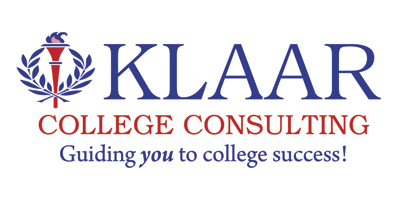Continuing on with our series from last week where we discussed the critical steps to take in each year of high school, specifically freshman and sophomore years – today we’re breaking down junior and senior years.
Steps to Take in Junior Year
Junior year is the most important in your admissions campaign because it’s the last full year of high school about which colleges will see complete data when you apply. It represents you as a more mature student. Colleges use it as source data in their predictive models to project how well you’ll perform as a college student.
1. Start on Your College List
Establish a set of criteria to guide you in building the list of schools to which you’ll apply. Your criteria can include such factors as the size of the student body, faculty-to-student ratio, total annual expenses, core curriculum, majors, degrees granted, geographic location, the nature of the local community, campus setting, campus amenities, work-study programs, and any other factors that you may consider important. By the end of junior year, you’ll narrow the list down to a pre-determined number of schools. You should plan to visit as many of them as possible over the next year.
2. Plan for Exams
You’ll be taking the SAT or the ACT and you’ll probably be taking AP exams. Register and mark the dates. Juniors should take the SAT or ACT in spring so you can take them again in the fall of your senior year if you need to improve your scores. Don’t take them too early to “get it over with.”
3. Hone Your Abilities in Extracurricular Activities
By now, you should know which activities that you’ll cite on your applications. Colleges look for commitment and depth, so just one activity is all you need if it fits that description. If you can attain a leadership role or garner an award in your activity, so much the better. Your talent or skill can serve you well, especially if it’s in a niche that colleges seek to fill.
4. Learn Your Options for Financial Aid
Review with your family the financial resources that will be available to you. Learn about financial aid from public sources, individual colleges, and corporations. High-school sponsored financial aid nights, independent financial aid counselors, and the media will be helpful in your research.
5. Register for the Optimal Curriculum for Senior Year
Meet with your guidance counselor to select classes for senior year. Make sure that you’ll graduate with all the courses that you’ll need for admission to specific schools that are on your list. Colleges consider the rigor of the curriculum of seniors as well as their grades when they’re available.
6. Reach Out to Letter of Recommendation Writers
Most requests for letters of recommendation are directed to guidance counselors and a small subset of teachers. These individuals receive an enormous number of requests. If you wish to obtain a letter from one of them, ask them as a junior so that they’ll have notice before the fall semester crush. Be sure that they’ll have only positive comments and that you won’t be “Damned by faint praise”. You can also elicit a letter from a coach, the leader of one of your organizations, or an employer as long as they know you well.
7. Visit Colleges
Campus visits require planning, especially if you wish to arrange for an admissions interview. Contact the admissions office to set up an interview, a guided tour, and a meeting with a faculty member and a student in the department of your planned major. There will be opportunities later to visit campuses, but it’s a good idea to start as a junior, especially with schools to which you may want to apply through an Early Admissions program.
8. Make the Best of Junior Summer
Admissions officials are impressed by those applicants who have worked within their planned field of study as interns or employees. If you have an opportunity to secure such a position, then by all means do so. It’s also time to start working on your essays and personal statements.
If possible, take a summer college course in your planned major to demonstrate your commitment to your planned field of study and to prove that you’re capable of college work.
Steps to Take in Senior Year
Seniors who aspire to attend college are very busy people. What has seemed far in the future is now upon you — crunch time to prepare applications that will secure your admission to your best-fit schools.
1. Finalize Your College List
For most students, you’re final list should be pared down to a pre-determined number of schools. With too few schools on the list, you won’t be spreading your risk sufficiently. With too many schools, you’ll dissipate your focus and effort. A good number to reach for is 8 to 10 colleges that are a good Fit and Match for you.
2. Paying for It
When finalizing your college list, don’t neglect a very important question — Can you handle it financially? October 1 is the first day that a student applying for financial aid can access, complete, and submit the FAFSA and CSS/PROFILE forms. These forms require a great deal of effort by you and your parents. The deadlines vary by college, but a head start is helpful.
3. Write Your Essays
Allow plenty of time to brainstorm topics, outline, draft, and polish your essays and personal statements. This is crucial, especially if you are applying to schools that require supplemental essays. Essay questions are broad, which can make it difficult to know how to relate the topic to your life. Obtain input from others on your topics and approach. Be wary of having too many adult editors.
4. Complete Your Application and Submit
Work hard on your applications. If you’re applying Early Admission to any schools, the usual deadline is November 1. For Regular Decision, the deadline is usually January 2.
You may be able to choose which application platform to use. If possible, use only one. The Common App is accepted by nearly 900 colleges and many schools that accept other apps also accept the Common App.
5. Submit Senior Fall Semester Grades
As soon they’re available, send your fall semester grades to the schools to which you’ve applied. This will be after you’ve submitted the application, but admissions officers want to be able to incorporate the data into their decision.
6. The Decisions of Your Colleges
Acceptance, rejection and waitlist letters arrive between late February and early April. You usually have until April 30 to accept an offer of admission. Don’t put too much faith in waitlists. Among the colleges that use them, only a small percentage of waitlisted students ever receive an acceptance letter.
7. Your Decision
If you’re accepted to more than one school, weigh all options. Talk with parents, other family members, teachers, mentors, and friends. Examine available financial aid and the total expenses at each school. If possible, visit the campuses of your two finalists to compare them closely.
8. Final Steps
Colleges have a deposit deadline of May 1st. Once senior year is over, send your final high school transcript to the college you’ll be attending. These grades may help you secure a scholarship or qualify for a competitive academic program. If you took AP classes during senior year and have passed the national exams with a score of 4 or 5, you may be able to earn college credits and skip a required course.
Conclusion:
Seeing the number of steps above, you, as a student or parent, might think that this is more than enough to do to prepare for admission to college. In fact, this is a partial list consisting of major tasks. Lesser tasks requiring little time have been omitted. But, just because they’re minor doesn’t mean these small tasks can be omitted.
The best way to accomplish all tasks that will lead to acceptance at your best-fit colleges is to hire Klaar College Consulting. Dr. Charlotte Klaar takes a no-nonsense, no-excuses approach as she works with students to make the entire college admissions process, including college search, application completion, and essay-writing, a delightful adventure of self-discovery and personal growth. Along the way, she helps students learn to make more informed decisions and to own the results. Call Today!
A Certified Educational Planner with 20-plus years of experience, Dr. Klaar is one of the nation’s top college consultants and has led hundreds of students to college success! For more information: Call 803-487-9777 or visit the www.cklaar.com.



